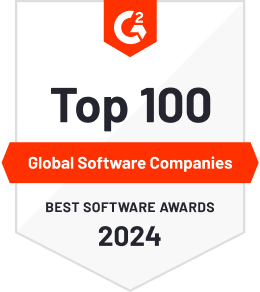
Product Updates — 7 min

Employer of Record & PEO — 10 min
You’re building a thriving startup company and wondering if it’s time to expand beyond your border. After all, more and more startups jump into the international market right from the get-go.
Maybe you should launch an international entity so you can do business in promising new markets. But launching your own international entity is expensives, time-consuming, and complex process.
How do the world’s biggest multinational corporations do it?
Easy: they have the money and resources to handle the details and the costs.
But you may not have that luxury. And you don’t have to be able to afford these luxuries.
Instead, you just need a clear plan for going global. You need a realistic cost estimate. And most of all, you need to know about one game-changing alternative.
This guide will walk you through that low-cost alternative to launching new international entities. You’ll learn how to expand and hire globally with speed, simplicity, and compliance with an employer of record (EOR). With the right global HR platform, you can dive quickly and confidently into the international market and open up a new world of elite remote talent.
An international entity is a company that operates across national borders, engaging in business activities and maintaining a presence in multiple countries.
The parent company may have legal entities in foreign countries in the form of subsidiaries, branches, or representative offices.
Some examples of international entities include McDonald’s, Subaru, Nokia, Apple, and Levi Strauss & Co. All these companies are headquartered in their home country but have branched out globally.
For startups, going international while still in the early stages of building their companies has definite advantages.
Starting out with a global mindset guides the company in adjusting its products or services for the international market, helping to avoid costly adjustments down the road.
But the critical question is, should you establish an international entity right away? Or is there a better way to start out internationally?
There are good reasons for setting up a legal entity in a new country.
You may want to enter a joint venture with another company, and in order to do that, you need a legal entity in another country.
Or perhaps you have long-term plans to expand in a specific international region because the market prospects there are great for your products. Having a local office will help you get a foothold in that foreign market and manage a workforce there.
If you’re thinking about this, you’ve probably also asked yourself questions like whether you have the right relationships with local experts, whether you’ve got someone in the company you could send there to manage the office, what it would cost, and yes, what the risks are.
Clearly, setting up a local entity in a foreign country is complex. That’s why it’s usually best to expand when you have the financial strength to handle the costs, responsibilities, and risks. The reality is that there are myriad aspects to deal with, including the following:
Defining the new legal entity’s purpose and structure
Researching and selecting the jurisdiction
Establishing a local physical presence
Managing compliance and legal requirements
Setting up the company administration and operations, including human resources, so you can begin hiring local employees
Dealing with taxes and other financial obligations
Monitoring the entity
Establishing local networks and partnerships
It’s easy to see how getting established abroad could take valuable time and attention away from developing your startup company.
Additionally, opening an international entity is expensive.
Before we look at a great alternative solution for startups, let’s take a peek at the costs a company could have to look at to set up an international entity.
The average cost of launching an international entity can vary widely, depending on factors such as the business’s industry, location, size, and complexity.
General cost categories include the following:
Incorporation and legal fees
Tax and accounting
Office space and utilities
Salaries and benefits
Marketing and advertising
These costs can add up fast, from tens of thousands to a couple hundred thousand dollars.
Remote has put together a detailed overview of the real cost of opening a business entity in a foreign country to help make the cost picture clearer.
Take a look at the list in the link. The cost may seem prohibitive for a startup, but the good news is that there’s no need to open an international entity until your team in the target country reaches a certain size — at which point opening your own entity is more financially viable.
Let’s now look at a cost-effective alternative that Remote can provide for startups that want to branch out internationally. It’s called an EOR.

An EOR is a third-party organization that takes on the legal and logistical responsibilities of employing a company’s workforce in a foreign country.
An EOR handles a range of services, including hiring, payroll, benefits, taxes, and compliance with local labor laws. Think of it as having an active HR department on the ground that manages your local workforce without the need to run an office there.
This practical solution allows the company to focus on its core business operations while expanding into new markets. You can expand with significantly more speed, ease, and flexibility.
In short, starting with an EOR like Remote is a great way to globally expand until you get to a point where opening an entity makes sense.
Let’s review the steps involved in establishing an international entity before discussing EORs a bit further.
Now that you know how an EOR works and what value an EOR can add to fast-track international employment – next, let’s review the steps of going international.
We’ll give you a general overview and point out specific areas where partnering with an EOR can give your startup a great head start.
The first step is to identify your best target market. This is going to take some serious research. Specific tasks to focus on include the following:
Market research. Conduct market research to determine consumer preferences, purchasing power, local competition, and potential demand for your product or service in the target market.
Price evaluation. Assess whether your product’s pricing is compatible with the local market’s economic conditions and whether you can make a profit in that market.
Distribution feasibility. Determine whether there’s a reliable and efficient way to get your product to the local market, considering the logistics, supply chain, and infrastructure you’ll be working with.
Post-sale service. Consider whether you can provide the necessary after-sale services, such as warranties, maintenance, or customer service, in the local language.
EORs can help you explore your target market since they’re familiar with the local landscape. An EOR can help you refine your hiring options. Remote's Employee Cost Calculator is asuper helpful resource you can use to compare the total costs to hire in different countries so you can more effectively budget.
The best EOR platforms also provide guidance on whether you should use an employee or independent contractor relationship based on the classification laws in the relevant country.
It’s sometimes hard to understand a foreign culture until you take a vacation or try to open a business there.
Two important factors to consider are as follows:
The need for cultural adaptation and sensitivity. Entering a foreign market means you’ll have to ensure that your products align with local customs, tastes, and traditions. This will likely involve adapting the product to local expectations in a culturally sensitive way that’ll also facilitate easy adaptation.
Marketing materials. When entering a new market, you may need to invest in translating your marketing materials and website into the local language.
Navigating the legal landscape is a critical yet challenging aspect of global business expansion, as it involves consideration of the following:
Local regulations. You’ll have to ensure that your products meet all local regulations and standards, which may include labeling, safety, or environmental requirements.
License requirements. Some industries require specific licenses or permits to operate in certain countries.
As an EOR, Remote can help your startup navigate the complexity of local regulations. You get a comprehensive HR platform with built-in protections for handling payroll tax and HR compliance according to the specific international employment legislation involved.
Hiring a workforce in a foreign country requires attention to be paid to the following:
Labor laws. Understanding local labor laws, regulations, and customs is crucial to ensuring compliance and successful integration.
Payroll and taxes. As an international employer, you’ll have to handle complex tasks, such as managing payroll in the local currency, withholding and filing taxes, and administering locally compliant benefits. Remote's global HR platform is the ideal solution for startups, enabling fast-growth companies to manage international payroll for employees and contractors globally in a matter of clicks.
Worker classification. In foreign countries, laws and regulations related to worker classification can vary significantly, depending on whether an individual is an employee or an independent contractor. Proper classification affects a range of responsibilities, from tax withholdings and benefits eligibility to employment rights. Misclassification can lead to legal complications and hefty fines and the right EOR will offer built-in protections to help you minimize misclassification risk.
Intellectual property (IP) protections. IP protections in a foreign country involve safeguarding a company’s patents, trademarks, and copyrights according to local laws.
This can be complex, given the differing IP regulations in different countries. Employment contracts that include the necessary confidentiality and non-disclosure agreements are vital to preventing potential IP misuse or theft.
After you get going internationally, be prepared to invest in the proper processes for repeating your operations in other countries and scaling up as your startup business expands.
Consider the following factors:
Detailed process documentation
Ongoing metrics/KPI tracking
Employee training programs that are internationally adjustable
Regular process reviews and optimization
Scalability testing
No matter what route you take, going international will require some serious thought. But partnering with an EOR such as Remote can greatly simplify and speed up the process.
Internationally expanding your business is exciting but expensive. Startups may want to establish an international entity, but this can take valuable time and resources away from the core company. So before you launch an international entity, look into the possibility of partnering with an EOR.
Remote offers you a comprehensive HR platform built specifically to simplify hiring, paying, and managing a global team.Remote can help small and mid-sized businesses get set up internationally for a fraction of the cost of undertaking the entire process yourself.
Start onboarding employees and contractors in minutes with Remote, G2’s top-ranked multi-country payroll software.

Subscribe to receive the latest
Remote blog posts and updates in your inbox.

Product Updates — 7 min

Global Payroll — 2 min

Minimum Wage & Compensation — 7 min

Newsroom — 5 min